Youth & Adult Volleyball
Programs for athletes of all ages and levels!
Ready to register?
Click here: Register Now

Founded in 2018, Momentum Volleyball is committed to growing volleyball in all communities, and at all ages. Momentum offers Youth & Adult volleyball programs for athletes of all levels, including camps, technical training, leagues, tournaments and technical clinics.
Current & Upcoming Programs:
Youth Technical Training & Day Camps
For more details on schedule, location, check out our Youth page!
Toronto
Summer Indoor Technical Training: Registration Open for Late Spring/Summer 2025!
Toronto Volleyball Centre – 75 Carl Hall Rd. in Downsview Park, North York, ON (located inside The Hangar Sports & Events Centre)
Wednesday Athlete Development (Grades 6 to 8): 6pm-7:30pm
Wednesday Competitive Training (Grades 7 to 10): 7:30pm-9pm
Late Spring/Summer Dates: May 28th -July 30th
Thursday Athlete Development (Grades 6 to 8): 6pm-7:30pm
Thursday Competitive Training (Grades 7 to 10): 7:30pm-9pm
Late Winter/Spring Dates: May 29th - July 31st
Summer Indoor Camps: Registration Open!
Toronto Volleyball Centre – 75 Carl Hall Rd. in Downsview Park, North York, ON
Athlete Development Camp Dates:
1: June 30th, July 2nd-July 4th
2: July 14th-18th
3: August 5th-8th
Competitive Training Camp Dates:
1: July 7th-11th
2: July 28th-August 1st
3: August 11th-15th
4: August 25th-29th
Summer Beach Camps: Registration Open for Summer 2025!
Volleyball Canada Beach Training Facility in Downsview Park (75 Carl Hall Rd., Unit 3)
Learn More & Register Here: https://volleyball.ca/en/about/camps-and-clinics
Aidan Wilkie, [email protected]
Kincardine
Late Spring/Summer Technical Training: Registration Open for Late Spring/Summer 2025!
Davidson Centre – 601 Durham St, Kincardine, ON N2Z 1L7
Monday VolleyPlus (Grades 4 to 6): 4:25pm-5:55pm
Monday Athlete Development (Grades 7 to 8): 5:55pm-7:25pm
Spring: April 14th (closed April 21st) April 28th - May 12th (closed May 19th) May 26th - June 30th
Summer Indoor Camps: Registration Open!
Location: Davidson Centre – 601 Durham St, Kincardine, ON N2Z 1L7
Times: 9am-4pm
Athlete Development Camp:
1: July 7th to 11th
2: July 21st to 25th
Competitive Training Camp:
1: July 28th to August 1st
2: August 25th to 29th
Summer Beach Camps: Registration Open!
Location: Station Beach – 249 Station Beach Rd, Kincardine, ON N2Z 2Y6
Times: AM – 9am-12pm, PM – 1pm-4pm
June 30th to July 4th (No program July 1st):
AM – Athlete Development Camp 1, Ages 10 to 12
PM – Athlete Development Camp 2, Ages 13 to 15
July 7th to 11th:
AM – Competitive Training 2s Camp 1, Ages 12 – 15
PM – Competitive Training 2s 2s Camp 1, Ages 16 - 18
July 14th to 18th:
AM – Athlete Development Camp 3 , Ages 10 to 12
PM – Athlete Development Camp 4, Ages 13 to 15
July 21st to 25th:
AM – Competitive Training 2s Camp 2, Ages 12 – 15
PM – Competitive Training 2s Camp 2, Ages 16 - 18
July 28th to August 1st:
AM – Athlete Development Camp 5, Ages 10 to 12
PM – Athlete Development Camp 6, Ages 13 to 15
August 5th to 8th:
AM – Competitive Training 2s Camp 3, Ages 12 – 15
PM – Competitive Training 2s Camp 3, Ages 16 - 18
August 11th to 15th:
AM – Athlete Development Camp 7, Ages 10 to 12
PM – Athlete Development Camp 8, Ages 13 to 15
Wiarton
Summer Indoor Full Day Camps - Registration Open!
Address: Peninsula Shores District School – 115 George St. Wiarton, ON N0H 2T0
Days & Times:
Monday-Thursday, 9am-4pm, Friday 9am-12pm.
No camp programs on holiday Mondays or Canada Day!
Athlete Development: Grades 5 to 6 & 7 to 9
Competitive Training: Grades 7 to 8 & 9 to 11
Athlete Development Camp Weeks:
July 7th to 11th
Competitive Training Camp Weeks:
1. July 28th to August 1st
2. August 11th to 15th
Summer Indoor Volleyball Camps: Registration Open!
Peninsula Shores District School – 115 George St. Wiarton, ON N0H 2T0
Hanover
Summer Indoor Volleyball Camps: Registration Opens!
John Diefenbaker Senior School: 201 18th Ave, Hanover, ON N4N 3S5
Volleyball Camp 1: July 14th to 18th
Volleyball Camp 2: August 18th to 22nd
Contact Hanover Parks & Recreation for more information https://www.hanover.ca/childrens-day-camps
Owen Sound
Summer Indoor Technical Clinics: Registration Open May 10th!
Address: Timothy Christian School – 1735 4th Ave W, Owen Sound, ON N4K
4X7
Wednesday Indoor Technical Clinics:
1. Grades 4-6 Boys & Girls, 4:30pm-5:45pm
2. Grades 7-8 Boys, 5:45pm-7:15pm
3. Grade 7-8 Girls, 7:15pm-8:45pm
Session Dates: May 21st, May 28th, June 4th, June 11th, June 18th, June 25th
Summer Half-Day Technical Clinics- Canada Day Week
1. VolleyPlus: Ages 8 to 11 (Grades 3-4 & 5-6), 9am-12pm
2. Athlete Development: Ages 12-14 (Grades 7-8), 1pm-4pm
Session Dates: June 30th, July 2nd, July 3rd, July 4th
Summer Indoor Half-Day & Full Day Camps: Registration Open May 10th!
Address: Timothy Christian School – 1735 4th Ave W, Owen Sound, ON N4K4X7
VolleyPlus Camp Weeks: Ages 8-11, 9am-12pm, AM only
1. July 7th – 11th
2. July 21st – 25th
3. July 28th – August 1st
4. August 5th – 8th
5. August 11th – 15th
Athlete Development Camp Weeks: Ages 12-14, 9am-4pm
1. July 7th – 11th
2. July 21st – 25th
3. July 28th – August 1st
4. August 5th – 8th
5. August 11th – 15th
Summer Beach Technical Clinics - Registration Open May 10th!
Address: Timothy Christian School – 1735 4th Ave W, Owen Sound, ON N4K4X7
Summer Competitive Beach 2s Clinics - Canada Day Week
1. Competitive Training Girls 2s Session Dates: June 30th, July 3rd
2. Competitive Training Boys 2s Session Dates: July 2nd, July 4th
Age Times:
14u-15u: 9am-12pm
16u-18u: 1pm-4pm
Monday Girls Competitive Training 2s - Coming Soon!
1. 4:30pm-6:15pm: 14u-15u
2. 6:15pm-8pm: 16u-18u
Wednesday Boys Competitive Training 2s - Coming Soon!
1. 14u-15u: 4:30pm-6:15pm
2. 16u-18u: 6:15pm-8pm
Program Details:
VolleyPlus, Grades 3 to 6: VolleyPlus Programs are for youth looking to get active for a fun camp, and learn volleyball along with other new games and activities. For early grade elementary school campers, our VolleyPlus programs are a great option for young athletes that like to play!
Athlete Development, Grades 6 to 8: Athlete Development Programs are for athletes developing their skills in volleyball, who are interested in getting better and learning how to play the game. Coaches are experienced in training athletes to get better, and help athletes develop both on and off the court. This level is a great fit for an elementary school-age athlete who is enjoying volleyball, and looking for more of the sport outside of school!
Competitive Training, Grades 7 to 10: Competitive Training Programs are for athletes eager to have successful tryouts & successful volleyball seasons. These athletes have usually selected volleyball as their primary sport. Coaches include collegiate & professional athletes, and work with the youth athletes to take their next step in competitive volleyball!
High Performance, 13u-16u: High Performance Programs are intended for competitive players only, who are committing to volleyball as their main sport; competitive club experience is very strongly recommended!
Each program includes skill development, gameplay and athlete development sessions.Our Momentum volleyball programs focus on volleyball skills for youth athletes of different levels. Our volleyball programs focus on skill development, game play training and tactical decision-making while working on the volleyball court! Our full day camps also include off-court development, which include movement and physical literacy sessions, to help campers improve as complete athletes. For these volleyball camps, we partner with elite resources & current/former elite athletes to provide a high-level experience for athletes looking to get better and continue to fall in love with volleyball!
What can I expect at Momentum’s volleyball camps?
Professional and varsity athletes leading athletes through activities
Professional collegiate & national-level coaches
Resource sessions & guest leaders, focusing on health and athlete education (Full day camps only)
Summer Camp Billet a Coach Program:
At our community camps, we invite families to apply to host one of our athlete coaches for the week. If accepted you will receive a camp fee rebate. If a family is accepted to host two pro coaches, your athlete will attend camp for FREE! For more information, email us directly at [email protected]!
Adult Leagues, Tournaments & Technical Training
Address: The York School - 1320 Yonge Street
All League Schedules, Scores & Standings: Click Here
Athlete Waiver for Substitutions: Click Here
For more details, check out our Adult page!
Monday 6:45pm: Intermediate Co-Ed 6s
Late Winter/Early Spring: March 3rd - May 12th; Closed April 21st
Late Spring/Summer: May 26th - July 28th
Tuesday 6:45pm: Intermediate Plus Co-Ed 6s
Late Winter/Early Spring: Feb 25th - May 6th; Closed April 15th
Late Spring/Summer: May 13th - July 22nd; Closed July 1st
Wednesday 6:45pm: Intermediate Plus Co-Ed 6s
Spring/Early Summer: April 2nd - June 18th; Closed April 16th, April 23rd
Summer: June 25th - August 27th
Thursday 6:45pm: Advanced Co-Ed 6s
Spring/Early Summer: April 10th - June 19th; Closed April 24th
Summer: June 26th - August 28th
Friday 6:45pm: Intermediate Co-Ed 6s
Spring/Early Summer: April 4th - June 20th; Closed April 18th & May 16th
Summer: June 27th - September 12th; Closed August 1st, August 29th
Adult Drop-Ins at The York School: https://api.leadconnectorhq.com/widget/booking/Lj61m6hGW2LAlvtC2U3Q
Intermediate/Intermediate Plus Co-Ed 6s: Saturdays, 6:30pm-8:30pm
Advanced Co-Ed 6s: Sundays, 8pm-10pm
Registration opens 5 days before each week's drop-in!
Adult Technical Training: Registration Open!
Address: The York School - 1320 Yonge Street
4pm-6pm: Beginner/Early Intermediate
6pm-8pm: Intermediate/Intermediate Plus
Session 4: May 11th-June 15th (Closed May 18th)
Session 5: June 22nd-July 20th
Session 6: July 27th - September 7th (Closed August 3rd, August 31st)
Locations
Central Toronto:
The York School – Main Campus: 1320 Yonge St., Toronto, ON
Enter on the North-East corner of the building, located at the corner of Farnham & Yonge St. There is a staircase that runs upstairs from Farnham St. to the north side of the building, and this is our main entrance for all programs at the school. There are parking options throughout the neighborhood and along Yonge St. in the evenings. There are a few close-by Green P options, a few churches and several private garages. St. Clair subway station is about a 4 minute walk north of the school, and Summerhill subway station is a 10 minute walk south of the school.
North York Hard Court:
Toronto Volleyball Centre – 75 Carl Hall Rd. in Downsview Park, North York, ON
Toronto Volleyball Centre is located inside The Hangar Sports & Events Centre. Enter through the main doors for The Hangar, and you will find volleyball located to your left just past the ball hockey rink! Parking is free in the lot surrounding the building. The Downsview Park is the closest subway station, and is a 12-minute walk north of the facility. There is also a GO Train station at the same station, that runs south to Union station and north to Aurora.
North York Sand/Beach Court:
Volleyball Canada High Performance Beach Volleyball Centre - 75 Carl Hall Rd. Unit 3, North York, ON
NOTE that this is a DIFFERENT LOCATION from our indoor programs! The Volleyball Canada facility is located on the North side of 75 Carl Hall Rd., and Unit 3 is the furthest unit West towards the hockey arena. Look for the Volleyball Canada logos on the door and front of the building. Washrooms and change rooms are located inside and available to use.
Etobicoke:
Kings Court Etobicoke – 1589 The Queensway #4, Etobicoke, ON
Enter on the South side of the building, located off the main road behind the KIA dealership all the way to the back as far as the lane goes. There is a single door as the main entrance to the right of the “Kings Court” sign. There is ample free parking in front and around the building. The nearest bus stop is at Atomic Ave which is on the same block as the facility.
Kincardine Indoor:
Davidson Centre - 601 Durham St, Kincardine, ON
Enter through the main doors, and turn right down the short flight of stairs. The gym is directly behind the front desk at the main entrance. Upstairs is available for mezzanine seating, where parents can watch with plenty of places to sit!
Kincardine Beach:
Station Beach - 249 Station Beach Rd, Kincardine, ON
The beach volleyball courts are visible as soon as you turn onto Station Beach Rd., and parking is available next to the courts. There are bathrooms next to the courts and a water fountain. A covered gazebo and Momentum's 10' x 10' tent are above several picnic tables for snack breaks.
Wiarton:
Peninsula Shores District School - 115 George St. Wiarton, ON
Enter through the main doors of the school, towards the North end of the entrance area. The gym is across the hall from the auditorium, and follows the North hallway that runs off the main entrance area. You should not have to open any doors inside until you get to the gym!
Owen Sound:
Timothy Christian School - 1735 4th Ave W, Owen Sound, ON
Enter through the main doors on 17th St. West, and the gym will be on your right.
Hanover:
John Diefenbaker Secondary School - 201 18th Ave, Hanover, ON
Enter through the main doors.
History & Our Mission
Founded in 2018, Momentum Volleyball began offering Youth Camps and clinics in smaller & rural communities in Ontario with a need for more volleyball programming. In 2021, we launched our first Adult League in Toronto, and expanded to offer Adult Technical Training in 2022. In the Spring of 2022, we expanded our programs to offer both day camps and our new Youth Technical Training in the Greater Toronto Area. In the Summer of 2023, we added more locations in new communities in the Grey/Bruce County area for youth programs! Our goal has remained to grow the sport across Canada, by improving access for youth to developmental programs. Our training programs are led by professional coaches and elite athletes, and our leagues are convened by athletes with a passion for the game and a love for organizing great volleyball competitions!
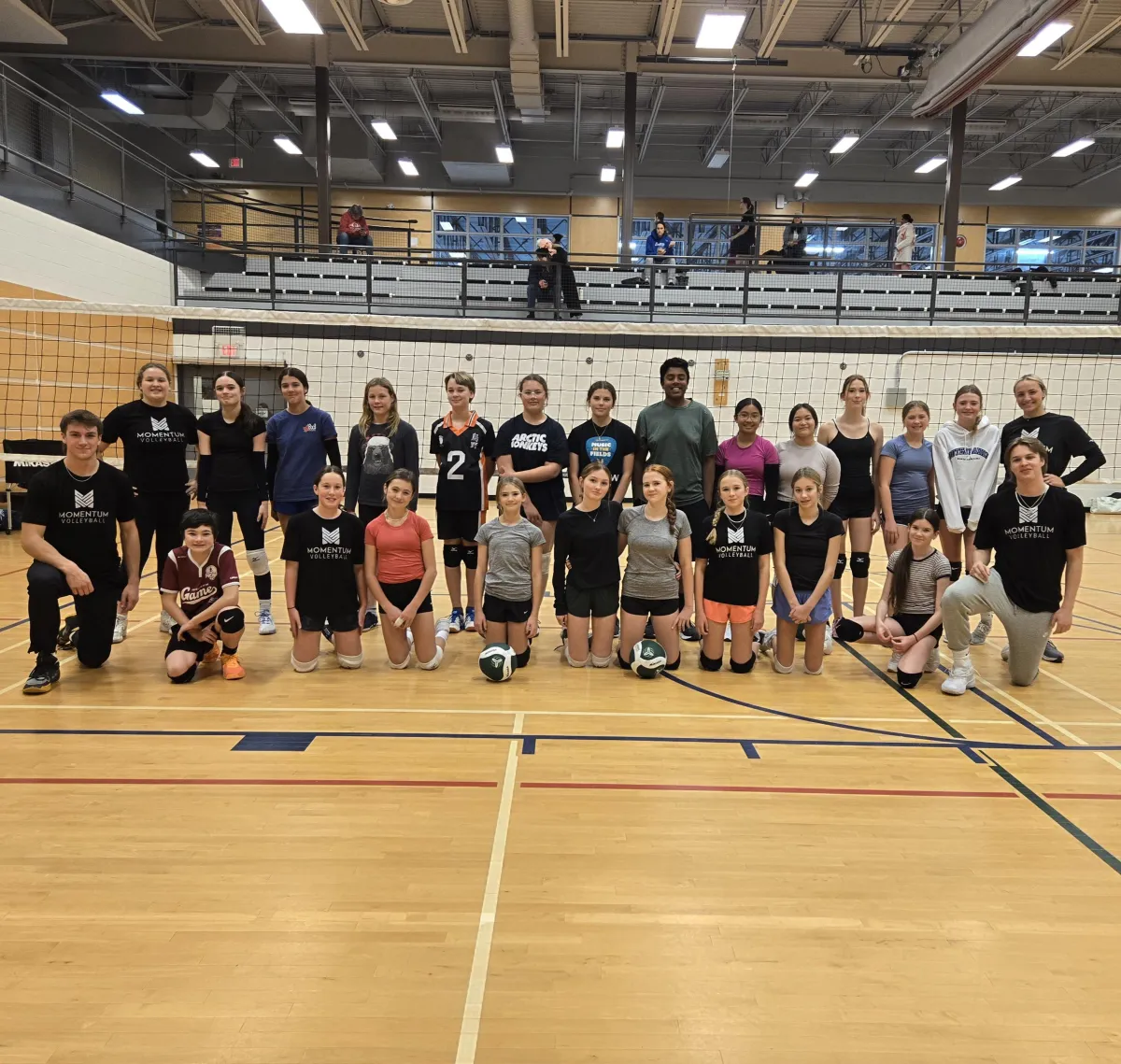
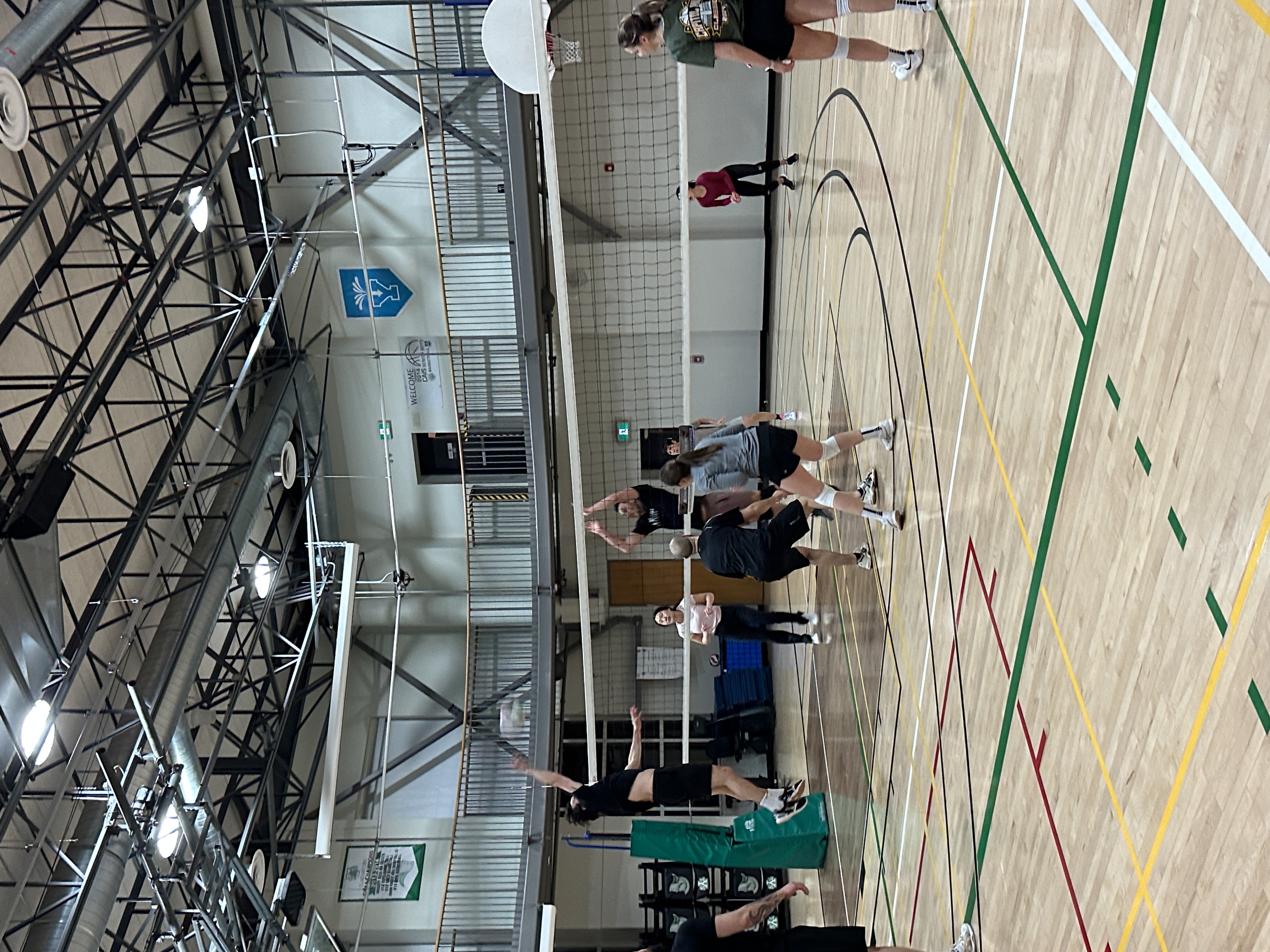
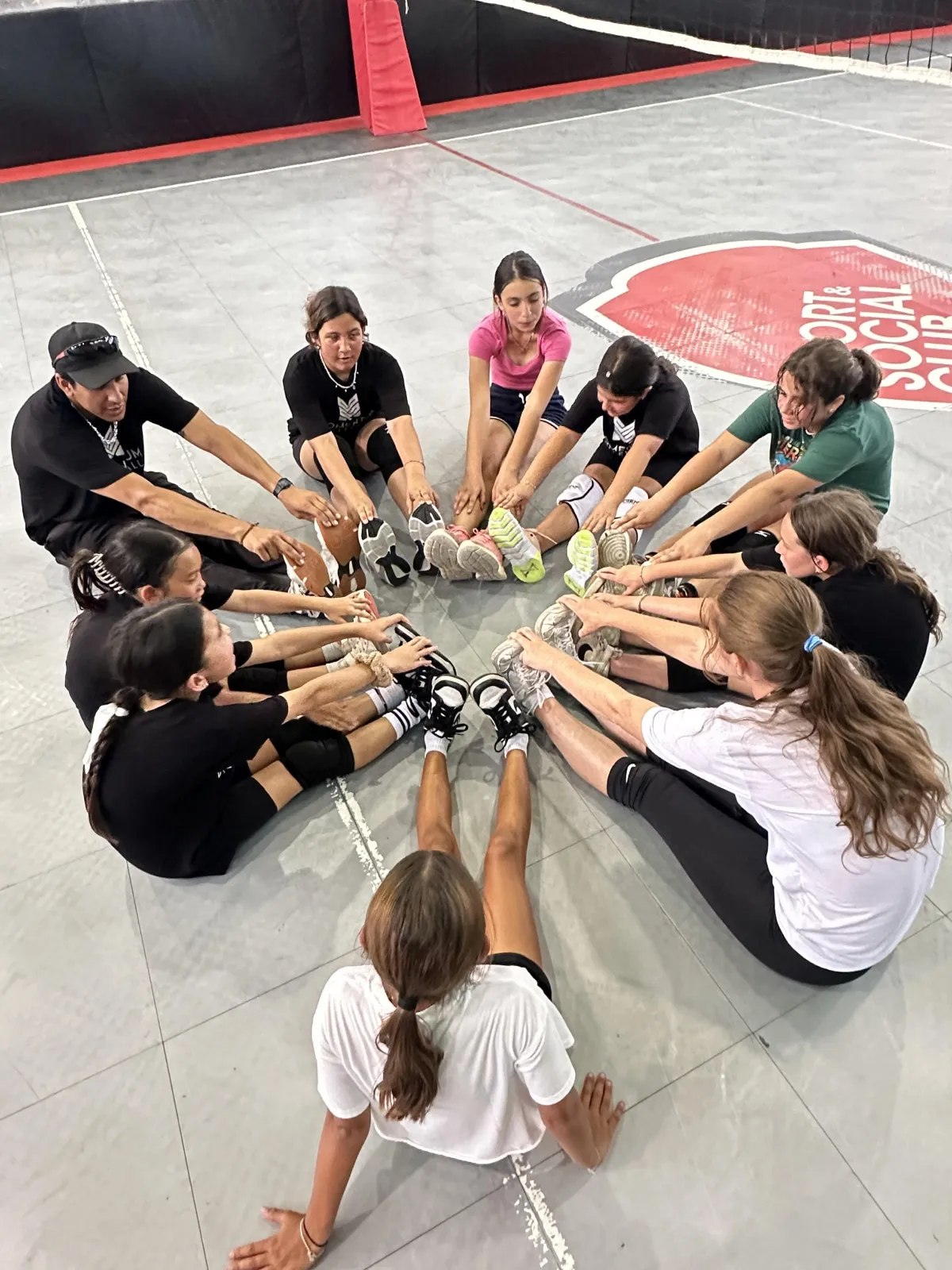
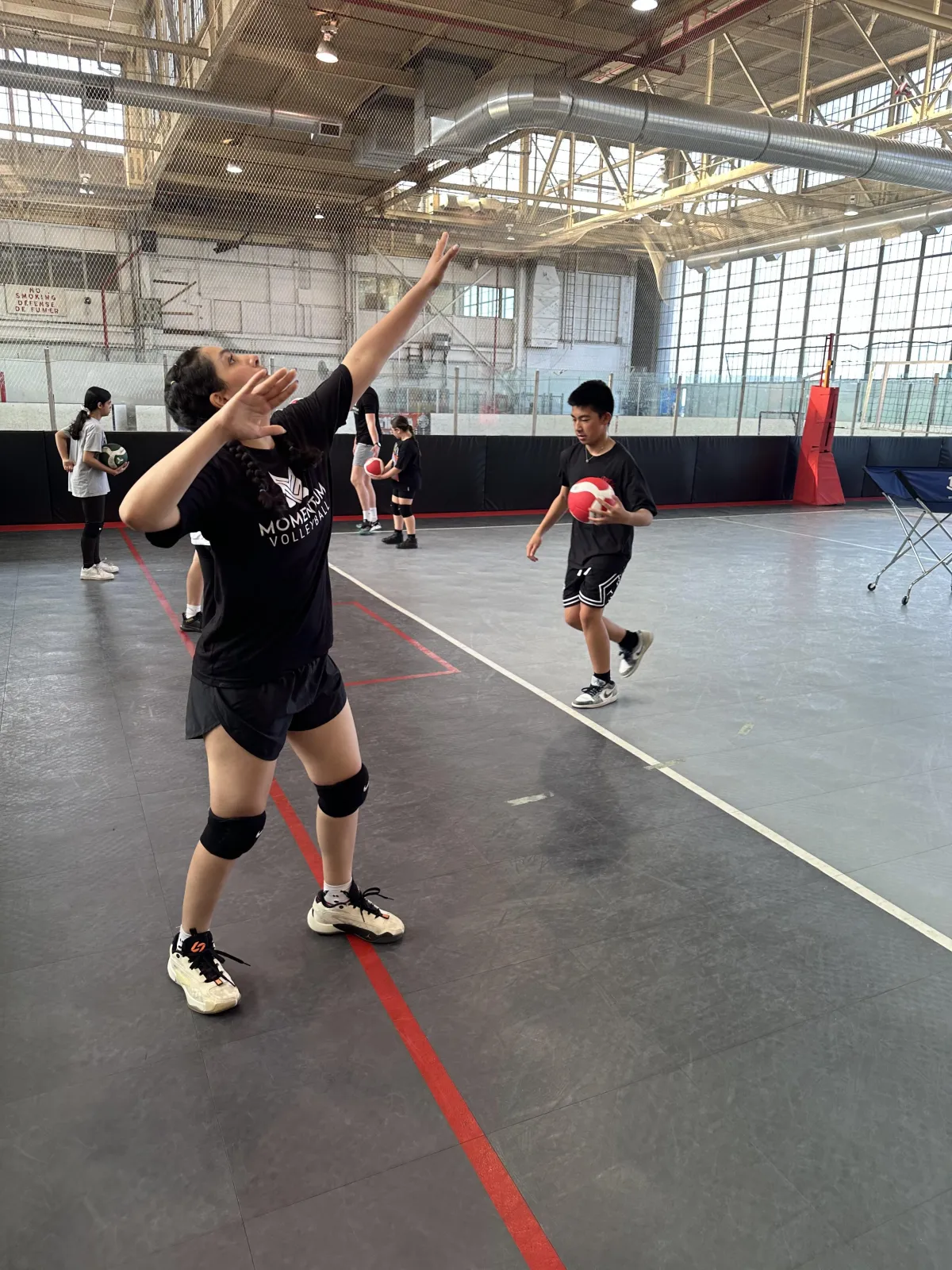
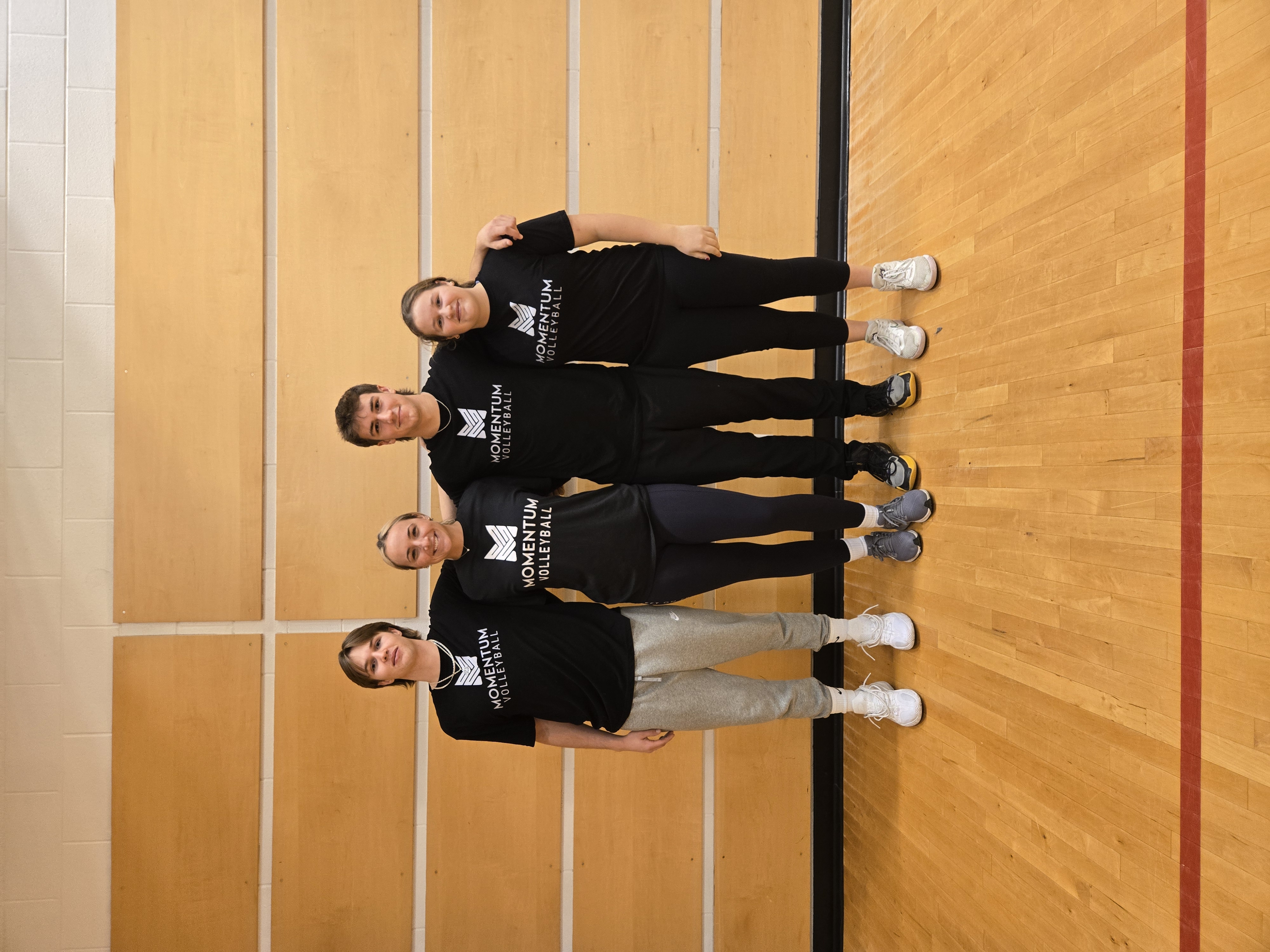
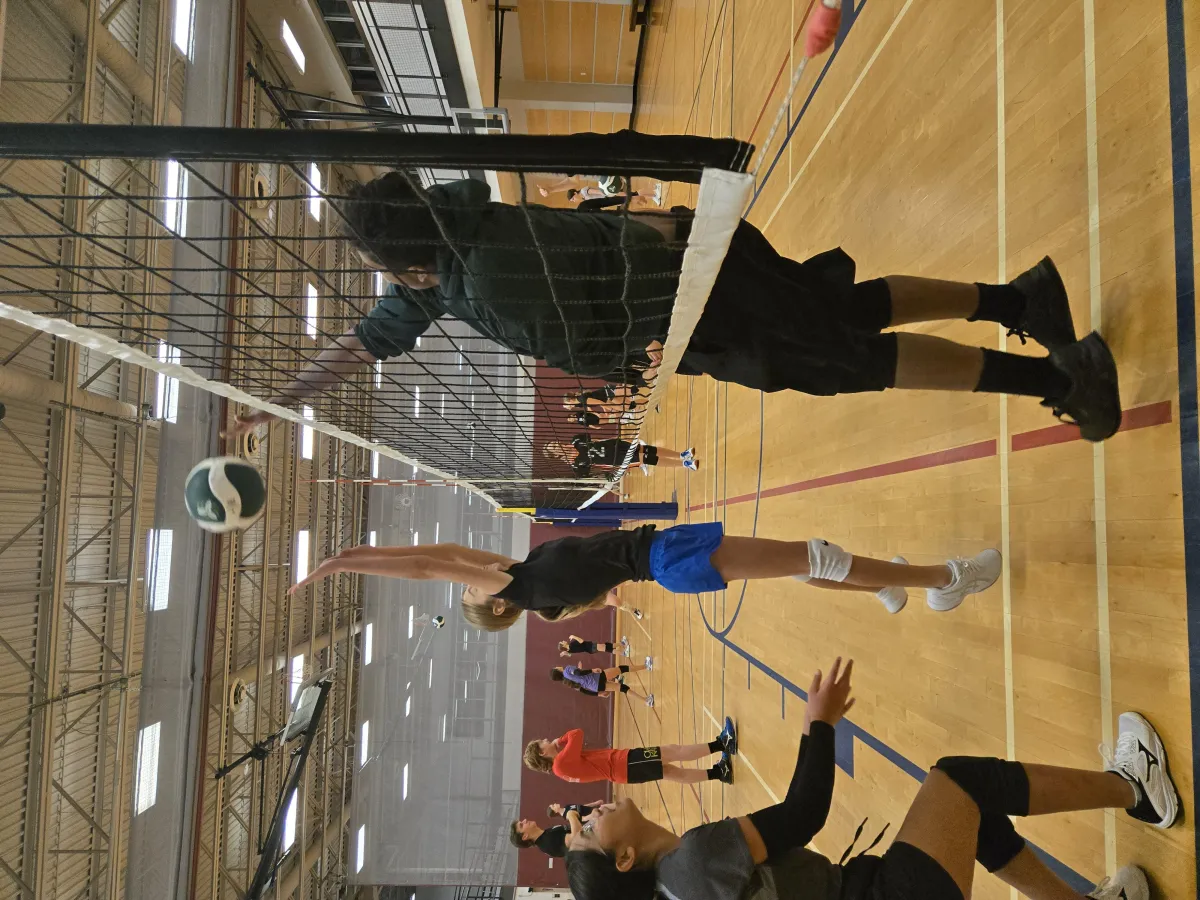
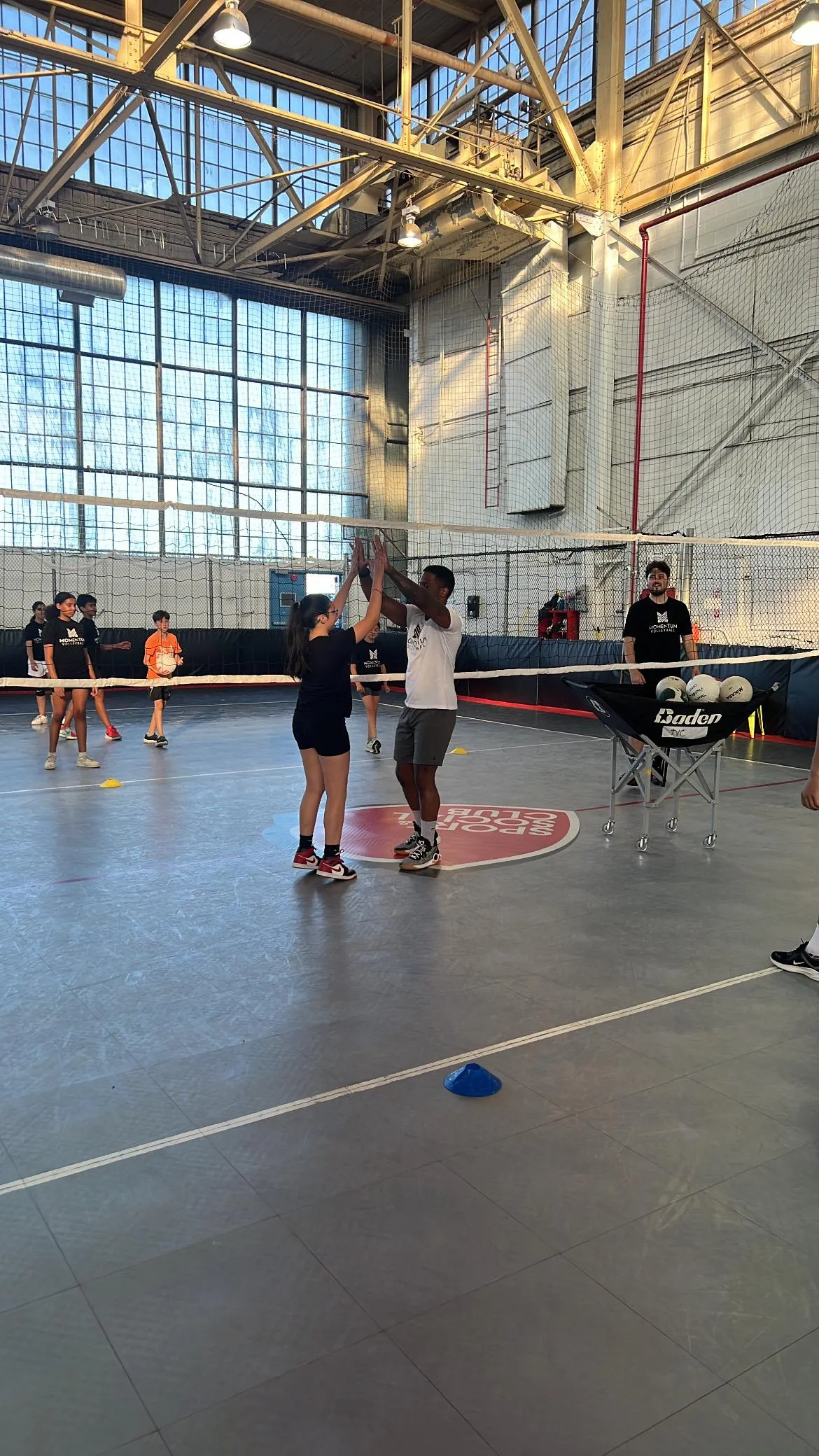
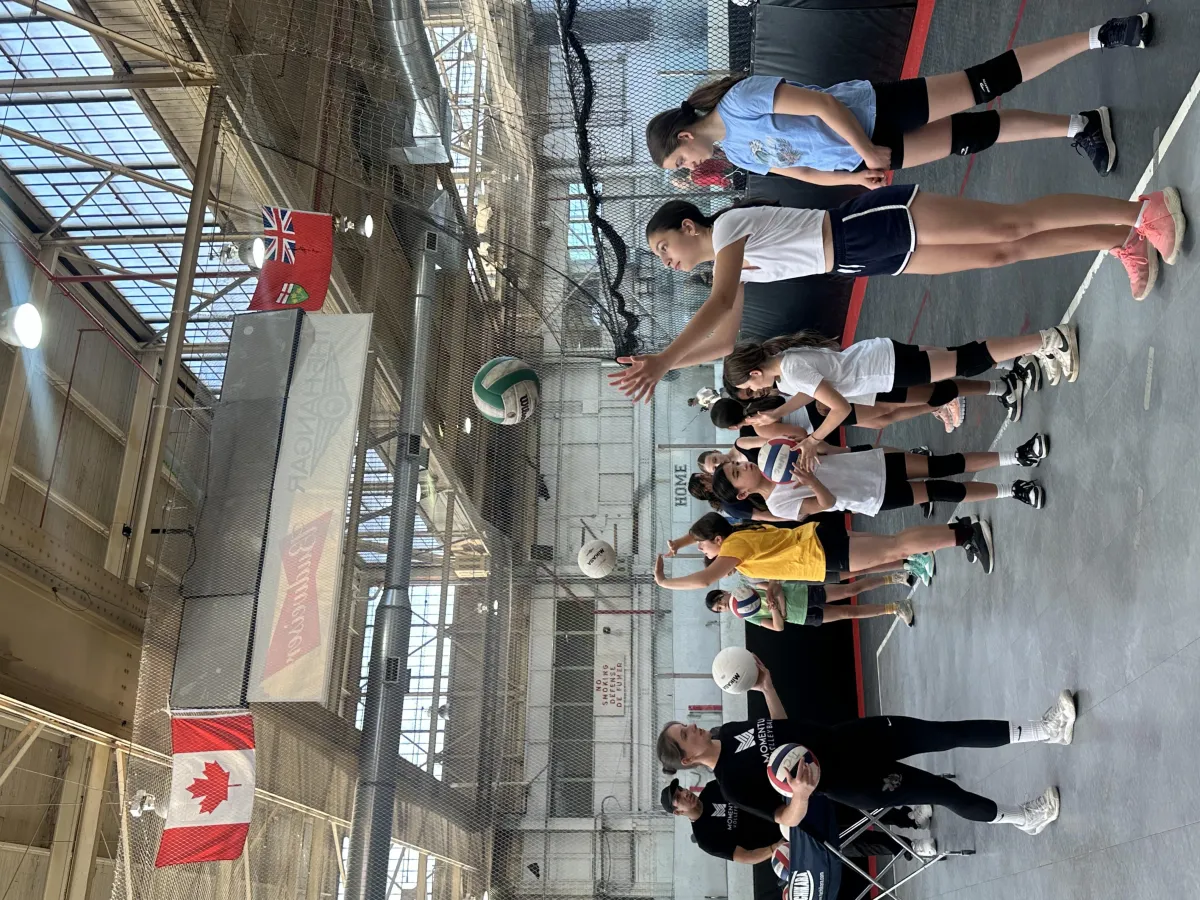
Follow Us on Facebook & Instagram:
Frequently Asked Questions
What is your Refund Policy?
Your registration fee is refundable in full if we cannot confirm your registration.
Your registration fee is refundable in full (minus credit card fees) if a request is received in writing by email more than 2 months in advance of the program start date.
Your registration fee is refundable up to 50% (minus credit card fees) if a request is received in writing by email, more than 1 month in advance of the program start date.
Your registration fee is refundable up to 25% (minus credit card fees) if a request is received in writing by mail or email up to two (2) weeks prior to the first day of the registered program.
There are no refunds within 2 weeks of a program’s start date.
Registrations received within the above-listed deadlines will immediately be subject to the same policy, therefore if you register within two weeks of a program's start date, your registration fee is required in full to confirm your application, and there are no refunds.
Our fees are inclusive for a full camp week or program season, and not day-by-day. Refunds will not be granted for days or sessions missed, or an early departure from a program.
What is your Weather Policy?
We are open if our facilities are open! If they cancel our permits, we will relay this ASAP to our customers regarding the closed date, however Momentum operates as long as our facilities are open.

Are there Make-Up Sessions for Missed Dates?
No, we do not offer make-up sessions for dates missed.

Registration:
Email:
Website:

